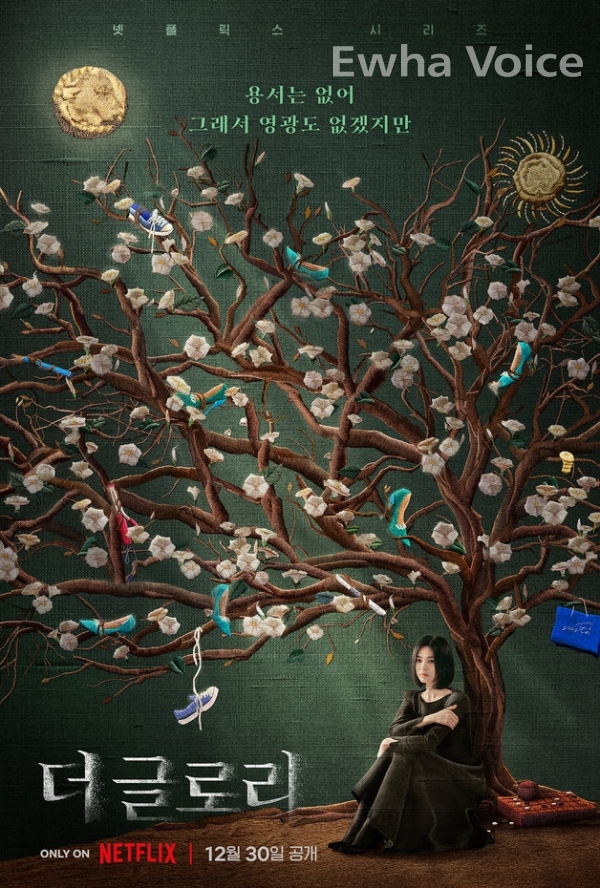The global attention on the Netflix thriller “The Glory” has shed light on past bullying incidents and violence.
“The Glory” presented by Netflix on December 30, 2022, is about the revenge story of a woman who was bullied to the point of deciding to drop out of school and whose soul was broken by the violence she experienced during her school days. The issue of school violence has long been a regular subject for movies and dramas, but since the emergence of OTT-based shows like “The Glory,” which portrays such scenes more explicitly, a greater amount of attention is being paid to bullying at school than before. Since the story depicts various types of school violence, viewers are reminded of actual incidents from their schools.

The curling iron scene in “The Glory” is known to be reminiscent of a real-life incident at Cheongju High School in 2006. Similar to the scene of the drama, three middle school seniors burned the victim’s arm with a curling iron and demanded bribes. In particular, the perpetrator of this case is known to have only received protective disposition from the court, with no permanent criminal record.
“The Glory” has also become a major hit in Thailand, spawning the hashtag “#TheGloryThai.” Since the drama aired, Thailand has been talking about acts of violence suffered by victims as well as confessions made by perpetrators. Many celebrities, including Pawat Chittsawangdee and Putthipong Assaratanakul, admitted their crimes of the past and asked for forgiveness through Twitter, which garnered various opinions from Thai netizens. Through this phenomenon, it was confirmed that “The Glory” has had a powerful influence on social problems beyond Korea.
The immense popularity of “The Glory” has provoked many people to reflect on their own experiences with school violence.
“The kind of school bullying that I have witnessed the most is victims being ignored by a larger group of others,” said Choi Yeju, a freshman from the Division of International Studies.

Through the viewers’ response to “The Glory” in Korea and Thailand, it demonstrated how influential media can be.
“Mass media, including OTT, brings actual events to the public in various ways and informs them the important parts that people may not have been aware about,” said Professor Yu Sae-Kyung from the Graduate School of Communication & Media.
Yu stressed that incidents that were neglected have been re- examined, and those who have committed crimes have faced great social repercussions. She explained that such mass media has positive outcomes as shown in other cases like the film “SILENCED,” a film about student abuse at a school for students with disabilities in Gwangju.
However, Yu warned that media is a double-edged sword, which may hide the truth by dramatizing actual events and causing distortion while using actions and graphics while in the process of editing.
“One of the biggest reasons for the success of ‘The Glory’ is because media based on true stories make the audience think that they can experience it themselves and guarantees possibility,” said Professor Kang Jiyoung from the Graduate School of Communication & Media.
Kang also informed that letting people know that these crimes happened in real life creates a link between the story and reality, immersing viewers into the story.
According to Kang, when creating films or TV series based on actual events, we should be aware of the author’s subjective perspective of the event as it can be projected to express socially or politically-biased views. In addition, when using a true story as source material, it is necessary to think deeply about the delivery of the message and about how to express it without distortion.

